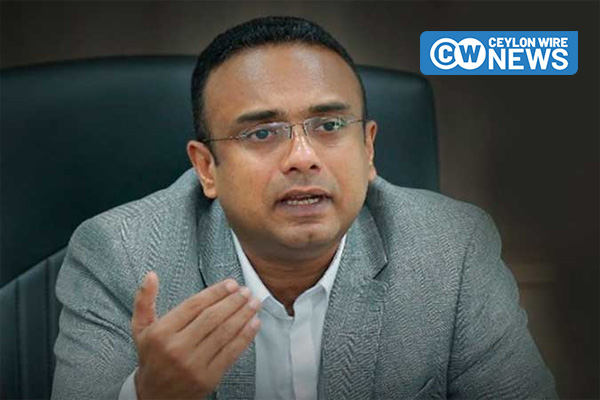Minister of Labor and Foreign Employment, Manusha Nanayakkara, criticized individuals today (25) who claim to be leaders of Sri Lanka but suggest developing policies for migrant workers without any knowledge of the existing policy, which was launched in 2008, revised in 2015, and reviewed in 2023.
The minister emphasized that true leaders should be aware of the existing policies as well as those currently under development. He expressed these views during the launch of the Sri Lanka Migration Employment Blueprint at the Kingsbury Hotel.
The National Policy and Action Plan on Migration for Employment in Sri Lanka (2023-2027) represents a significant step forward in the government’s approach to labor migration. It originates from the 2008 National Labor Migration Policy (NLMP), which received support from various stakeholders, both governmental and non-governmental, working together to address the needs and challenges of migrant workers during their overseas employment.
In 2015, recognizing the unique concerns of returning migrants, Sri Lanka established a Sub Policy on Return and Reintegration, providing dedicated support for Sri Lankan citizens returning from overseas employment.
In 2018, recognizing the evolving migration landscape, the government initiated the crucial process of updating the 2008 policy. This process culminated with cabinet approval on September 4, 2023.
The updated Policy and NAP view labor migration through the lens of “Decent Work,” acknowledging the profound impact of employment quality on the migrant experience. They also emphasize the importance of the three I’s: Investment, Innovation, and Inclusion, with the goal of establishing a new labor migration paradigm in Sri Lanka.
Addressing the gathering, the Minister noted that Sri Lankan migrant workers have supported the country in overcoming the recent economic crisis by sending remittances through banks. He expressed his commitment to formulating new policies aimed at providing much-needed facilities to migrant workers.
“Celebrating a milestone in our nation’s journey, the ‘National Policy and Action Plan on Migration for Employment Sri Lanka 2023 – 2027’ symbolizes our unwavering commitment to harnessing the potential of our overseas workforce. By focusing on Investment, Innovation, and Inclusion, we envision a future where migration for employment isn’t just about remittances but a holistic investment in the prosperity and resilience of Sri Lanka. Together, let’s champion the well-being and success of our migrant community, crafting a brighter, more inclusive tomorrow,” Minister Manusha Nanayakkara said.
The Minister pointed out that $4.3 billion was received in the first nine months of this year, and foreign remittances from Sri Lankans living abroad have surged by 75% compared to the previous year.
“Our migrant workers have immensely contributed to boosting our foreign reserves over the past year and a half. I would like to express my gratitude for their commitment to rebuilding our economy. I have introduced a new loan scheme for migrant workers, which, unfortunately, has yet to be fully implemented due to several bureaucratic challenges,” he added.
He noted that in order to honour and recognize the contributions of migrant workers, a special ‘HOPE GATE’ was opened at the Bandaranaike International Airport in Katunayake. The Minister went on to say that as a policy maker, he has worked tirelessly to provide the best possible facilities for migrant workers; however, due to bureaucratic challenges, some of the policies have not been fully implemented.
Regarding the recent government initiative to encourage Sri Lankans abroad to send remittances through banks, the Minister pointed out that an import licensing system was introduced for electric vehicles.
“The initiative to provide licenses for importing electric vehicles was conducted with full transparency, and it successfully increased the remittance earnings of the country. Licenses have been issued only to those who have sent remittances to Sri Lanka through legal channels. This initiative is not exempt from import duties and is in line with a cabinet decision aimed at encouraging Sri Lankans abroad to send remittances through legal channels. All imported vehicles are required to pay the full customs duty and other taxes levied by the Customs Department, contributing to state revenue,” he said.









